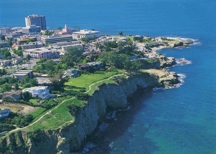*Program
**Keynote Speakers
This is a preliminary announcement on keynote speakers.
#html{{
<table border="0">
<tr><td valign="top"><img src="./image/SmarrHiResCloseup.jpg"></td>
<td valign="top"><i><b>Dr. Larry Smarr</b></i>, Director, Calit2 and Professor, Computer Science & Engineering, Jacobs School of Engineering, UCSD<br/><br/>
Larry Smarr became founding director in 2000 of the California Institute for Telecommunications and Information Technology (Calit2), a University of California San Diego/UC Irvine partnership. He holds the Harry E. Gruber professorship in the Jacobs Schoolís Department of Computer Science and Engineering at UCSD. For the previous 15 years as founding director of the National Center for Supercomputing Applications Smarr helped drive major developments in the planetary information infrastructure: the Internet, the Web, scientific visualization, virtual reality, and global telepresence. Smarr serves as PI on the NSFís OptIPuter and the Moore Foundationís CAMERA microbial metagenomics projects. <br/>
<br/>
Smarr was a member of the Presidentís Information Technology Advisory Committee for President Clinton and served until 2005 on the Advisory Committee to the Director of the National Institutes of Health and the NASA Advisory Council. He is a member of the National Academy of Engineering and a Fellow of the American Physical Society and the American Academy of Arts and Sciences. In 2006 he received the IEEE Computer Society Tsutomu Kanai Award for his lifetime achievements in distributed computing systems. <br/><br/><br/>
</td></tr>
<tr><td valign="top"><img></td>
<td valign="top"><i><b>Dr. Vernor Vinge</b></i>, Novelist & Retired Professor of Computer Science, San Diego State University<br/><br/>
Vernor Vinge holds a PhD(Math) from University of California, San Diego. From 1972 to 2000 he taught in the Department of Math and Computer Sciences at San Diego State University. He has now
retired from SDSU in order to write science-fiction full time. <br/>
<br/>
In 1982, at a panel for AAAI-82, he proposed that in the near future technology would accelerate the evolution of intelligence leading to a kind of "singularity" beyond which merely human extrapolation was essentially impossible. In the 1980s and 1990s, he elaborated on this theme, both in his science fiction and nonfiction. Vinge sold his first science-fiction story in 1964. His novella "True Names" (1981), is one of the earliest stories about cyberspace. His most recent novel, "Rainbows End" (2006), looks at the impact of wearable computing and smart environments on issues of entertainment, privacy, and terror. Vinge has won five Hugos, including three for best novel.
<br/>
</td></tr>
</table>
}}



